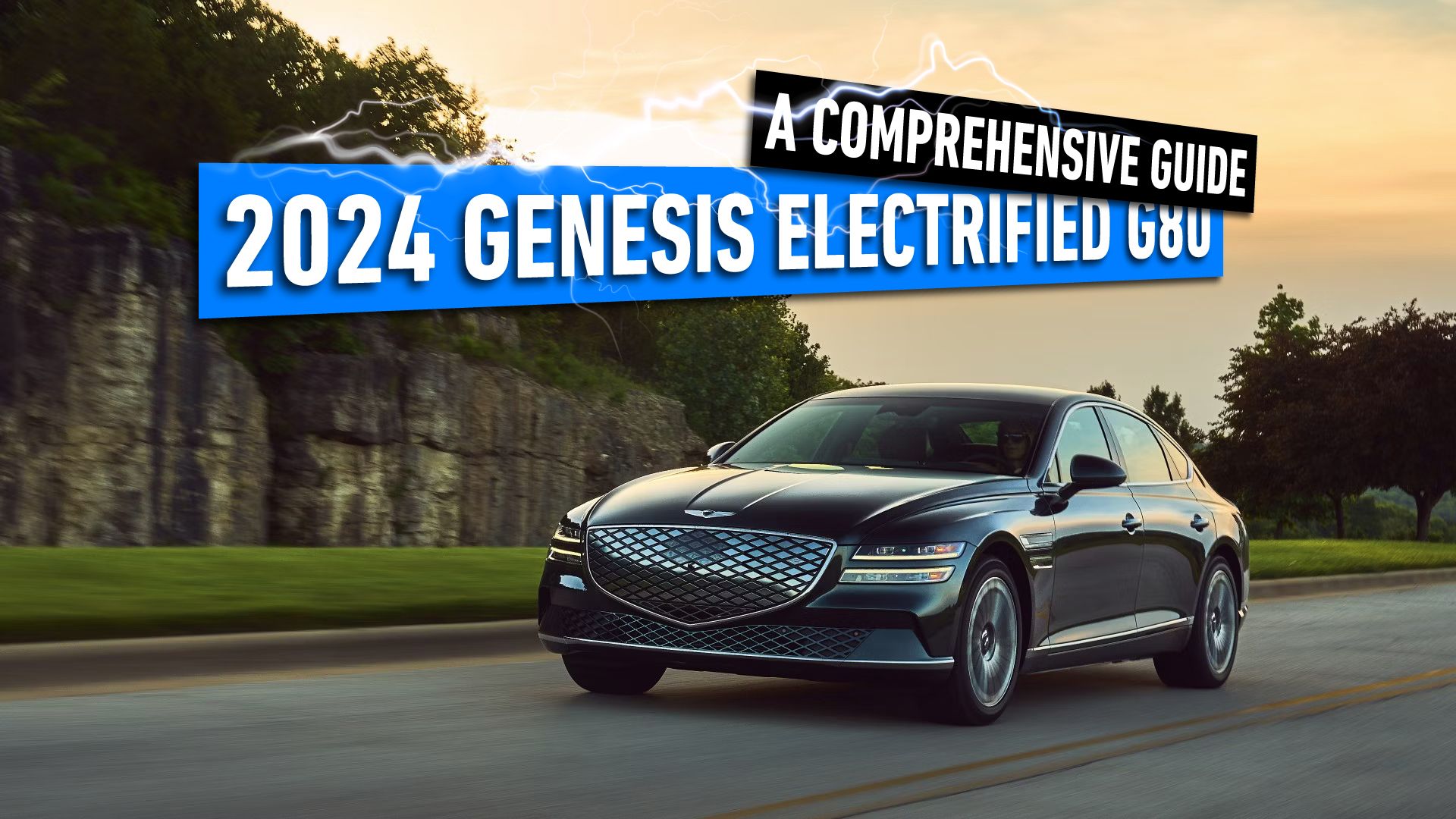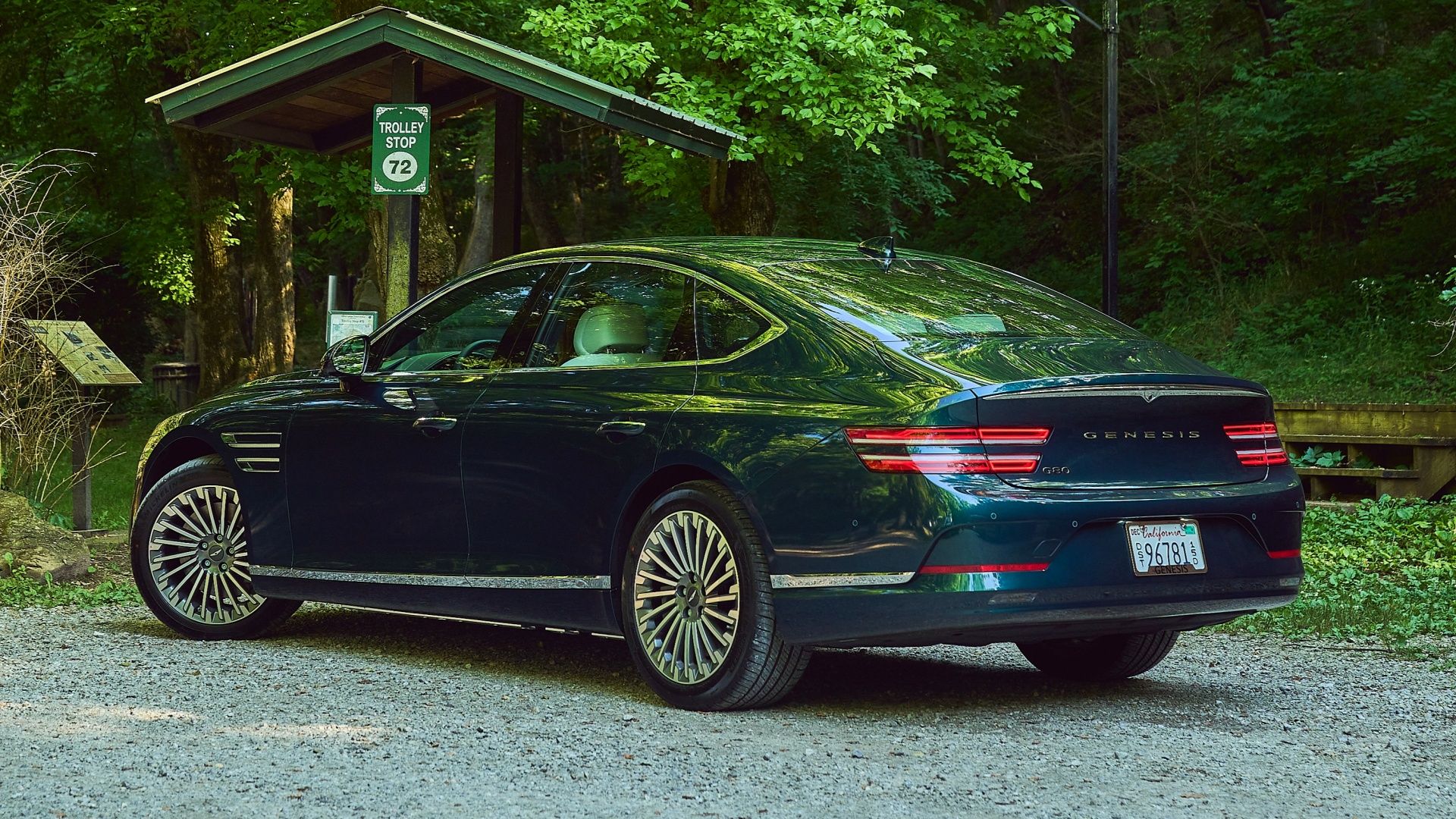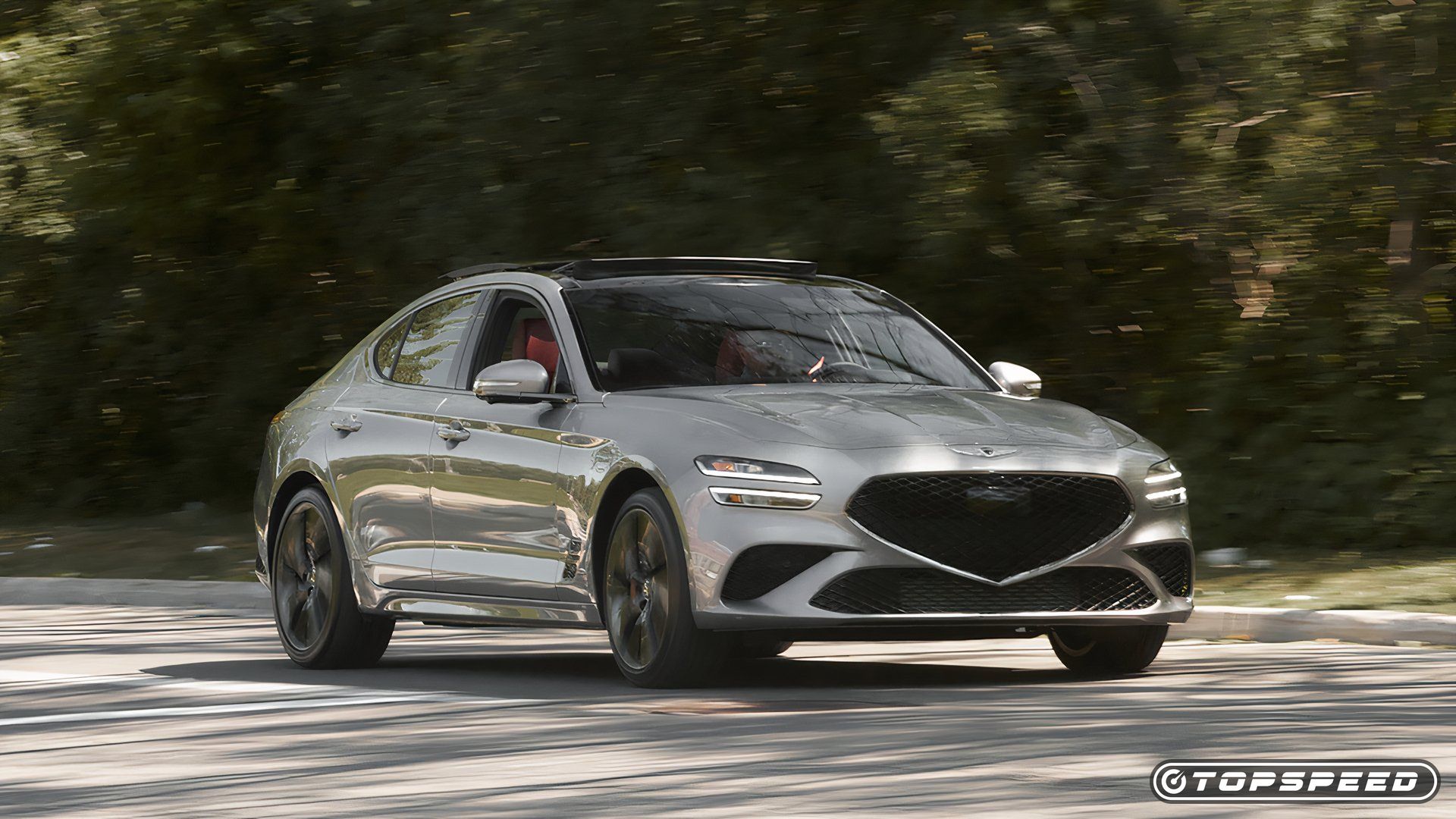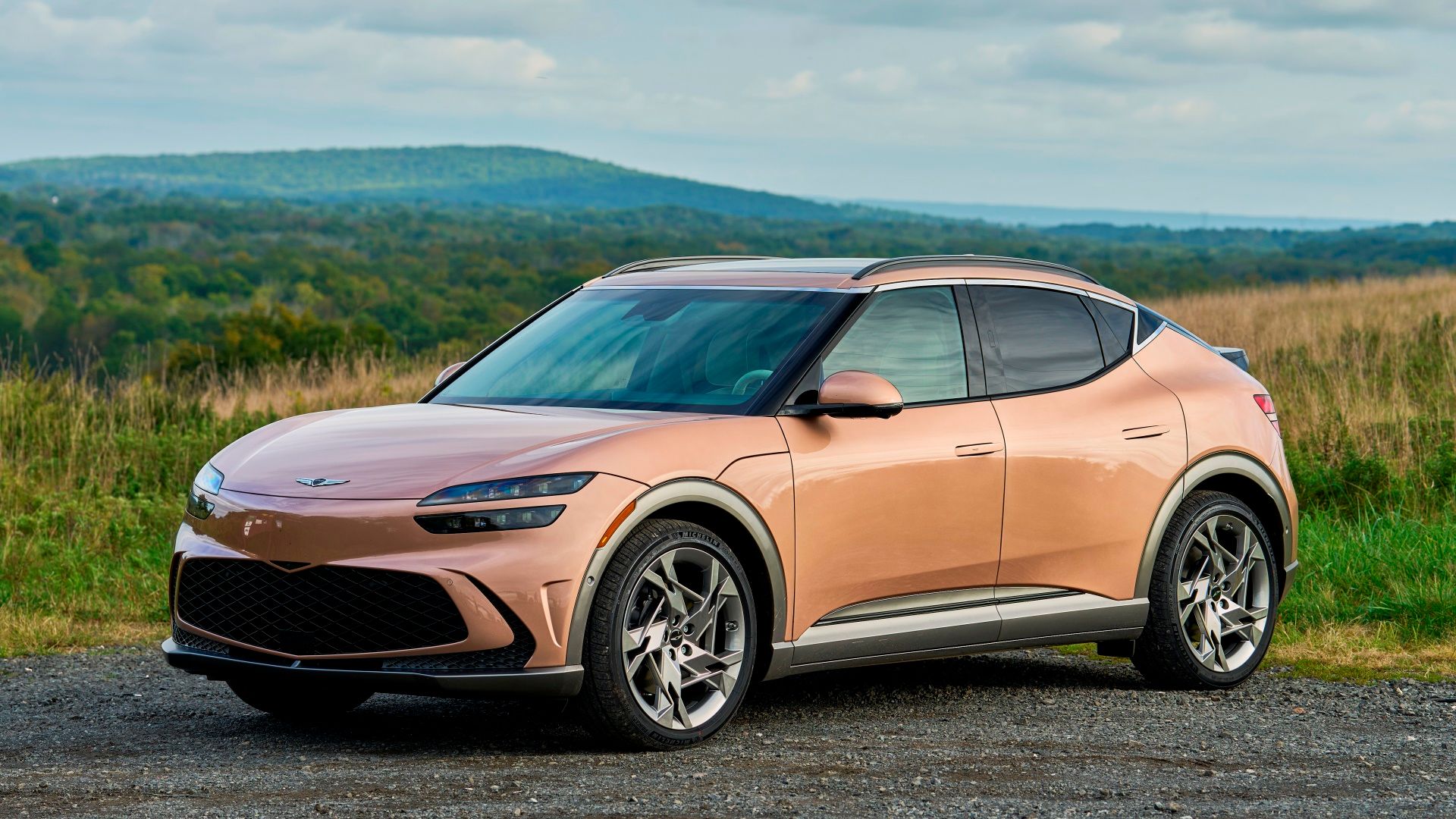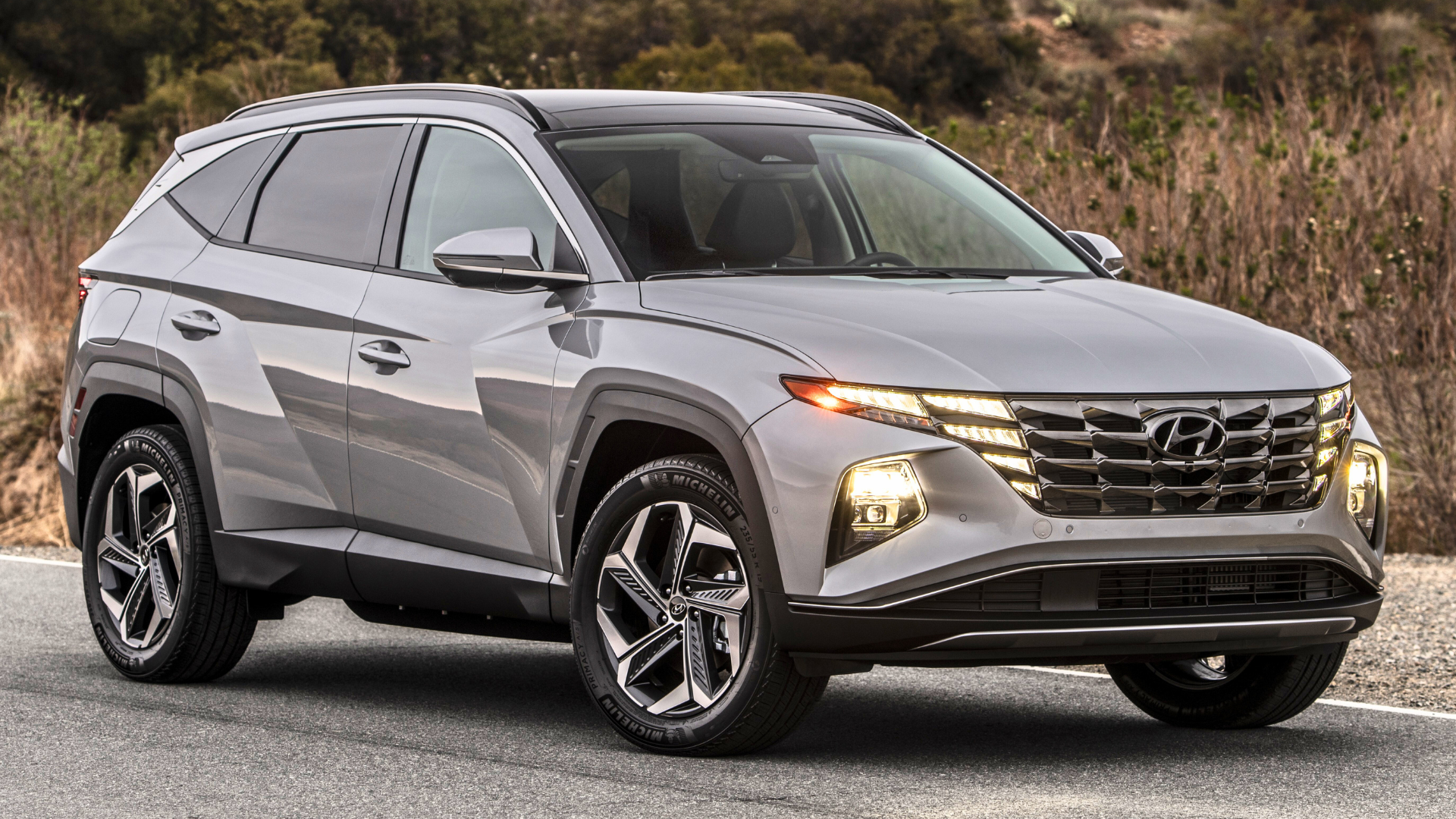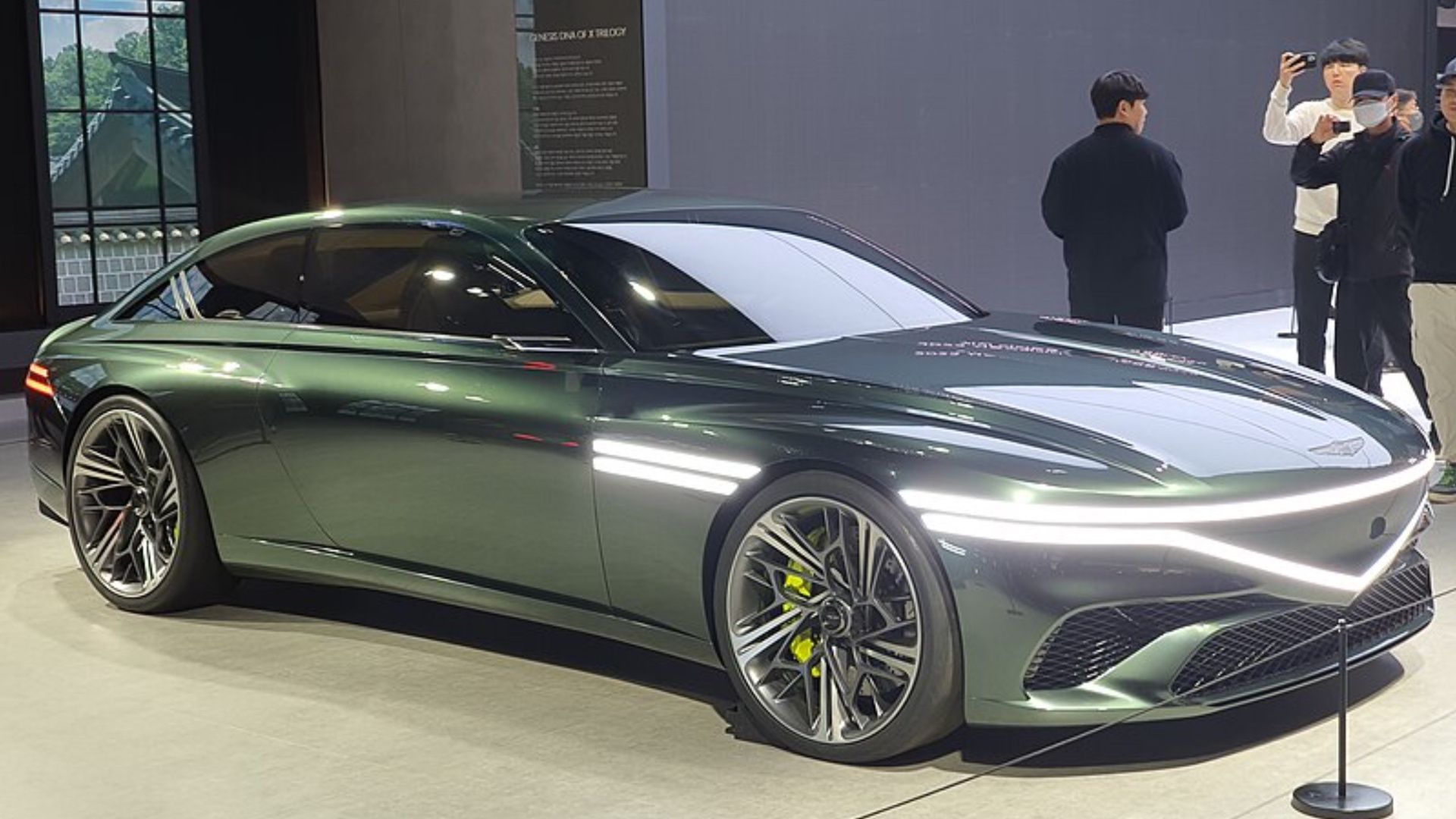The Hyundai Group currently offers a comprehensive hybrid catalog, with a primary focus on crossovers and SUVs. It applies these drivetrains to the Hyundai and Kia brands, but interestingly, Genesis doesn’t benefit from any of this technology. Hyundai’s premium arm currently sells three different electric car options, but these are very niche products that barely make a dent in their primary rivals’ sales results. To be fair, Genesis has always been a more exclusive product that doesn’t focus on volume sales, but the group has big plans in store to improve the sub-brand’s overall global market appeal.
Genesis will soon be incorporating hybridization into its line-up, which is a decision that most people would think is a no-brainer. Electric cars may be rising in popularity, but their profit margins and projected growth remain questionable. Hybrids, on the other hand, tend to be more popular these days, with more new car buyers considering the now conventional gasoline and electric configurations over traditional ICE products. This is a strategy that Toyota has always promoted despite considerable criticism, but it seems that a lot of brands are starting to see the light.
In order to give you the most up-to-date and accurate information possible, the data used to compile this article was sourced from Genesis’s websites and other authoritative sources, including Top Gear and Cox Automotive.
Related
2024 Genesis Electrified G80
Can the Genesis Electrified G80 stack up against the best luxury electric cars on the market?
Genesis Wants To Focus On Hybrids
According to an interview conducted by Top Gear at this year’s Goodwood Festival of Speed, Genesis will start focusing less on EVs and more on traditional hybrid cars. Genesis CEO Mike Song says that the brand thought electrification would quickly rise to become the global automotive standard, which is why it went all in on the new technology. 2023’s annual sales results revealed a decline in global EV demand, while hybrids became substantially more popular. Because of this, Genesis will slow its electrification transition by adding new hybrid alternatives.
Song insists that the brand remains dedicated to full electrification, but emphasizes that a less drastic transition over a longer period will take place. He adds that existing customers have shown strong interest in hybridized Genesis products across multiple global markets. Head of development at Genesis, Tyrone Johnson, adds that brands became focused on electrification when the EU started placing heavy carbon emission laws and sanctions, which scared a lot of manufacturers into heavily investing in electrification.
How Genesis Plans To Shift Strategies
While the sales figures are relatively low, Johnson insists that Genesis has overachieved in creating a catalog of attractive and effective electric cars. This rapid progression means that it is now on track to create even more impressive hybrid cars that focus more on electrification than ICE systems. He adds that this would not have been possible if Genesis hadn’t spent the last five years trying to progress a full electrification transition. On the ICE side, Genesis doesn’t translate into innovation, as its range still features its older large displacement units.
We’re highly unlikely to see Genesis substantial changes in its ICE departments. It also hasn’t clarified whether it will focus more on hybrids or plug-in hybrids, but considering its current range of older ICEs and newer EVs, it would make more sense for the brand to prioritize the latter. PHEVs benefit from more advanced electrification systems, resultantly allowing them to rely less on internal combustion engines. We also can’t rule out the possibility of the premium brand sourcing more ICE technology from other Hyundai catalogs.

Add TopSpeed to your Google News feed.
Genesis Doesn’t Sell Hybrids In The U.S.
Despite Hyundai and Kia executing aggressive hybrid strategies in the U.S., Genesis seems to have steered clear of this propulsion system, without any explanation. We also have to remember that, despite the Hyundai Group’s substantial history, Genesis is a fairly young brand that only started in 2015. Hyundai first used the Genesis moniker on its early premium sedans and performance coupes in the mid-2000s. The G90 was its first market-ready product, which only launched in 2017. For a brand that’s technically still finding its footing, this sudden shift in strategy is understandable.
The brand only focuses on crossovers and sedans, with a common design language, in a bid to strengthen its reputation across all competitive international markets. We’ve seen some coupe and supercar concepts, but production variants are a far distance away from becoming a reality. Despite its youth, Genesis has been steadily increasing its global unit sales, proving its worth in an arena that’s filled with competitive brands that benefit from a much deeper history and stronger prestige. Looking forward, Genesis will continue to offer a focused catalog that emphasizes individuality and quality.
2:32
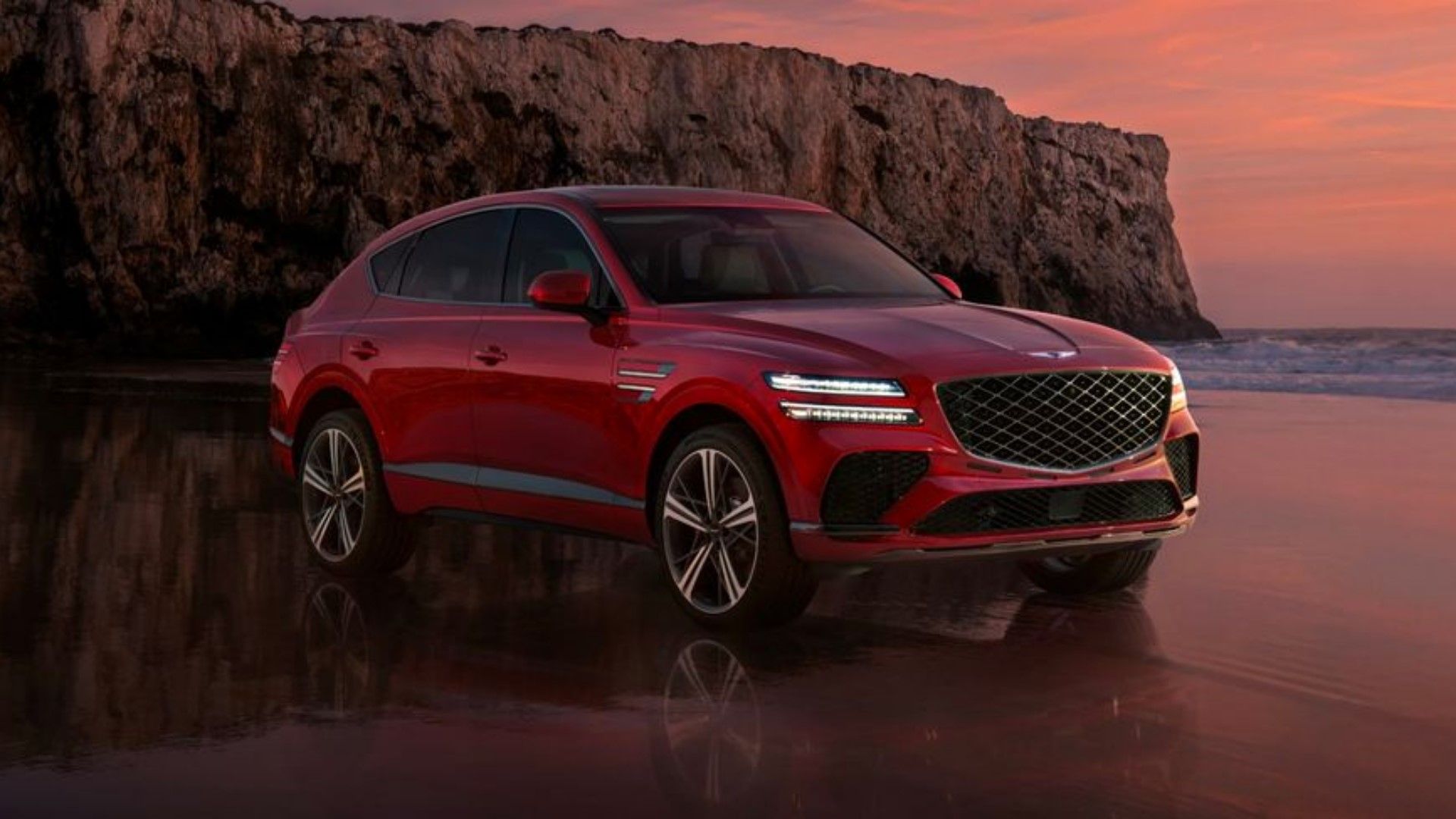
Related
The Evolution Of The Genesis Luxury Car Brand
Genesis spawned from Hyundai to take the luxury vehicle segment by stor, and so far it’s proven to be a big success.
How Many Electric Cars Genesis Sells In The U.S.
Genesis’s EV range consists of three cars, all of which struggle to put a dent in the likes of Tesla and Ford. Considering how much the brand has invested in developing and producing these three cars, it’s certain that higher volumes are needed. The Electrified GV70 is its most popular model, having sold 1,875 units over the first two quarters of 2024. The GV60 sits right behind it, having sold 1,126 examples in the same period. The Electrified G80 sedan fell very flat, having only achieved 140 deliveries throughout the first half of this year.
Genesis EV Sales 2024
|
Model |
Unit Sales |
|
GV60 |
1,126 |
|
Electrified GV70 |
1,875 |
|
Electrified G80 |
140 |
All Genesis Electrified cars sit in the premium segments, which contributes to why they move lower volumes. It’s also in-line with how the brand’s ICE cars perform in their respective segments. Overall, 2024 reflects increased EV sales in the U.S., but this is likely thanks to the Inflation Reduction Act tax rebates and significant price cuts from most manufacturers who produce EVs in the USA. Unfortunately for Genesis, only the Electrified GV70 benefits from the $7,500 tax credit, as the brand produces it at its Montgomery-based facility.
How Popular Hybrids Are In The U.S.
Electric cars are increasing in popularity, but hybrids remain much more successful products, thanks to their impressive efficiency returns and better affordability. Although it doesn’t give us model breakdowns, the Hyundai Group reveals that its hybrid sales increased by 39 percent in June compared to the previous month. Looking at all of its model’s unit sales, it’s unlikely that any of its hybrid products sit in the U.S.’s top-selling charts. The Honda CR-V and Toyota RAV4 hybrids outsell the entire Tucson and Sportage range, proving that even these compelling alternatives still have a long journey ahead of them.
Best-Selling Hybrids In 2023
|
Model |
Unit Sales |
|
Honda CR-V Hybrid |
197,317 |
|
Toyota RAV4 Hybrid |
161,125 |
|
Honda Accord Hybrid |
96,323 |
|
Toyota Sienna Hybrid |
66,539 |
The hybrid segment in the U.S. is enjoying considerable success for a number of reasons. Rising fuel costs remain a noteworthy reason why this drivetrain configuration has become so popular over the last two years, as car owners desperately try to lower their monthly running costs. Newer hybrid cars are also far more advanced than their previous-generation counterparts thanks to the substantial innovations made in electric motor and battery technologies, making them much more appealing and practical options.
Hybrid cars don’t benefit from tax incentives, but plug-in hybrids do. This has been a major contributor to the segment’s overall success in the U.S., because it lets consumers benefit from considerable savings while still opting for a relatively familiar product that doesn’t completely rely on electrification. New car consumers also tend to be more educated about hybrid cars. In the age of the early-generation Prius models, hybrids garnered a bad reputation, but consistent developments and improved marketing have turned the tide.
Lots Of Brands Are Abandoning Electrification For Hybridization
Genesis isn’t the only brand to shift its focus away from full electrification and pay more attention to hybridization. Mercedes-Benz recently announced that it was scrapping its all-new EV platform to focus on developing and improving its existing drivetrain technology for the sake of lowering development costs and maintaining mass market appeal. Jaguar also announced that it would no longer execute its full electrification strategy by 2025 and pay more attention to creating PHEV systems for its next generation of cars.
As we’ve mentioned, this is a strategy that Toyota has emphasized ever since the EV rush began at the end of the last decade just before the Covid-19 pandemic. The Japanese brand received a lot of criticism for its decision to retain an expansive ICE catalog, but it’s one of the very few brands that hasn’t had to shift strategy. It still has an electrification portfolio, but hybridization remains a core segment.
This allows the brand to free up development funds for alternative fuel sources like hydrogen and synthetic gasoline. While we don’t see it with the Genesis brand, the Hyundai Group also takes a balanced approach of focusing on ICEs, hybrids, and full EVs, while experimenting with hydrogen to a lesser extent.
Credit: Source link
